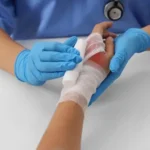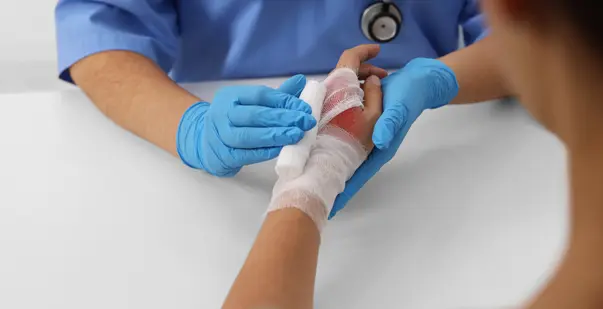Did you know that over 50 million Americans suffer from allergies each year? Our immune system has a natural way of defending us from foreign materials that make us sick. It creates antibodies, specialized cells that destroy anything that is foreign in our blood and tissues. However, you have to note that there are people with sensitive immune systems, and having the knowledge of First Aid and CPR recertification programs can help you learn how to handle serious allergies. There are also seasonal allergies that strike you at different times of the year, and you need to be careful. Allergy symptoms can most likely affect your airways, sinuses and nasal passages.
When an immune system is too sensitive, it can consider milk, peanuts, or shellfish as threats to the body. When this happens, it overreacts and attacks even the healthiest cells in the body. Effects include red and itchy skin, rashes, sneezing, and even digestive issues. When the allergy is more serious, it could result in cardiac arrest, respiratory failure, and even death.
What to Do When an Allergic Reaction Happens
If your family or someone you know seems to be having a serious allergic reaction, follow these steps to effectively administer aid until professional help arrives.
Know When it is Serious
Mild reactions can include skin rashes, swelling, diarrhea, sneezing, and a runny nose. These symptoms can be easily treated. But, the case is different when the victim experiences more serious reactions like anaphylactic shock.
Usually, people who undergo anaphylactic shock feel nauseous and light-headed. They will also have a weak pulse. Since the airway can experience swelling, the victim may have difficulty in breathing.
Administer Epinephrine
There are people who know that they have really serious allergies and because of that, they carry around an EpiPen with them. When someone in your vicinity goes into serious reactions, see if they have an EpiPen with them.
An EpiPen is a simple auto-injector with a single dose of epinephrine. It is normally injected into the thigh. Additionally, you do not need to have an advanced medical background to administer it.
In special cases, people will need two shots of epinephrine. But, before you administer the second allergy shot, you need to seek out a qualified medic first.
Call 911
In certain situations, a person might not have an EpiPen to administer allergy shots when they experience anaphylactic shock. If this occurs, the initial step you should take is to dial 911.
Administer CPR
While waiting for the medical help to arrive, the person may fall unconscious. When this happens, it is time to administer CPR. The heel of your hand must be between the nipples and center of the chest and then have the second hand over the first. Make sure that your shoulders are above your hands. With this position, start pressing down with your body weight together with the strength of your arm.
This should be done continuously until someone takes over or until the help arrives.
If the Person is Conscious, Treat for Shock
When the person is still conscious, have them lying down with their feet 12 inches above their head. You do not have to give them oral medicines because they would most likely be experiencing difficulty in breathing. As someone trained through an online CPR recertification program, you should know to talk to the person so they stay calm until a medical professional arrives.
Join the American Health Care Academy and improve your skills today. You never know when you will need them!













